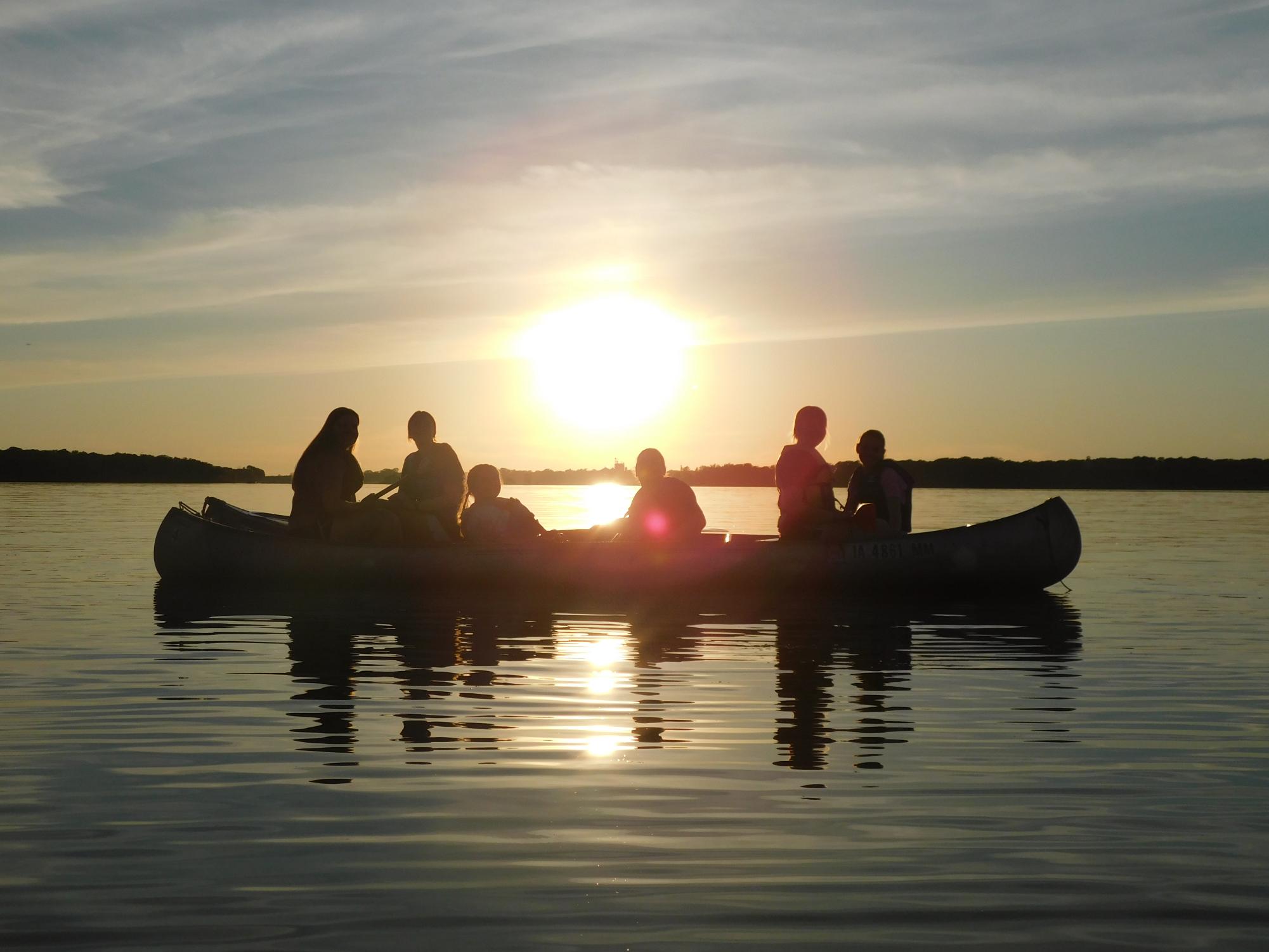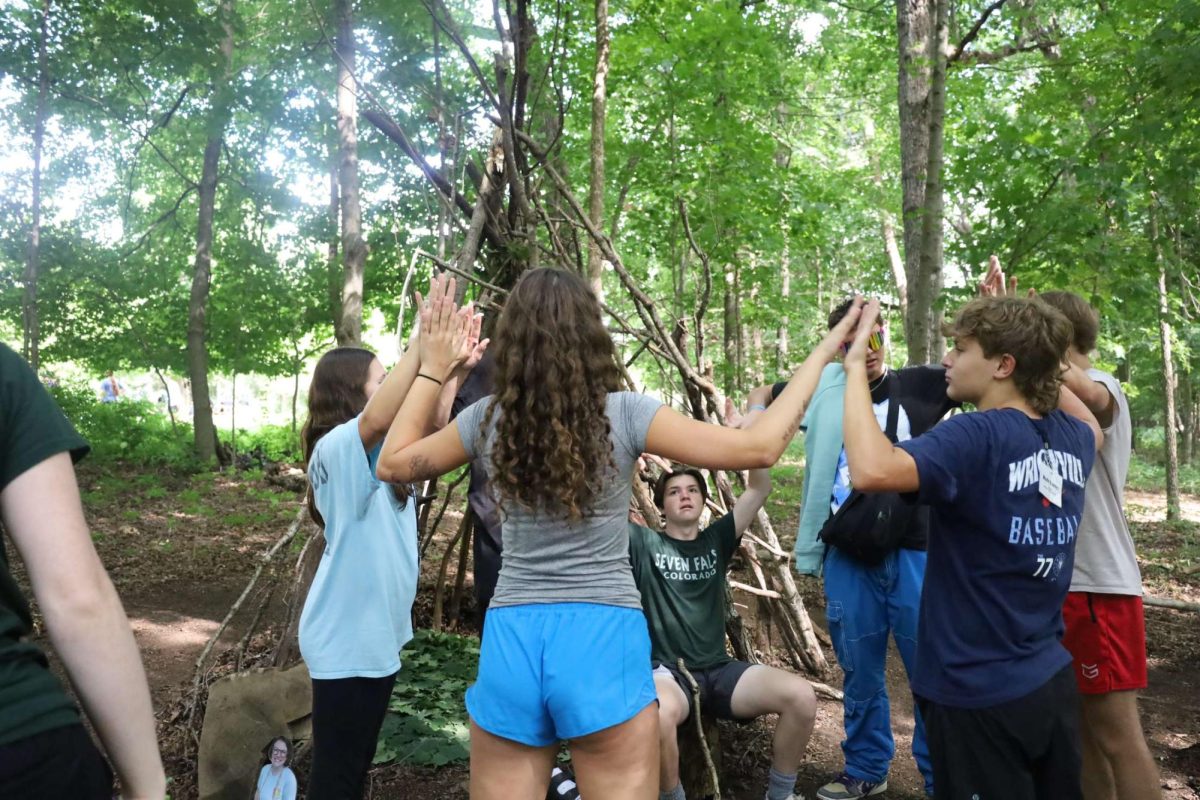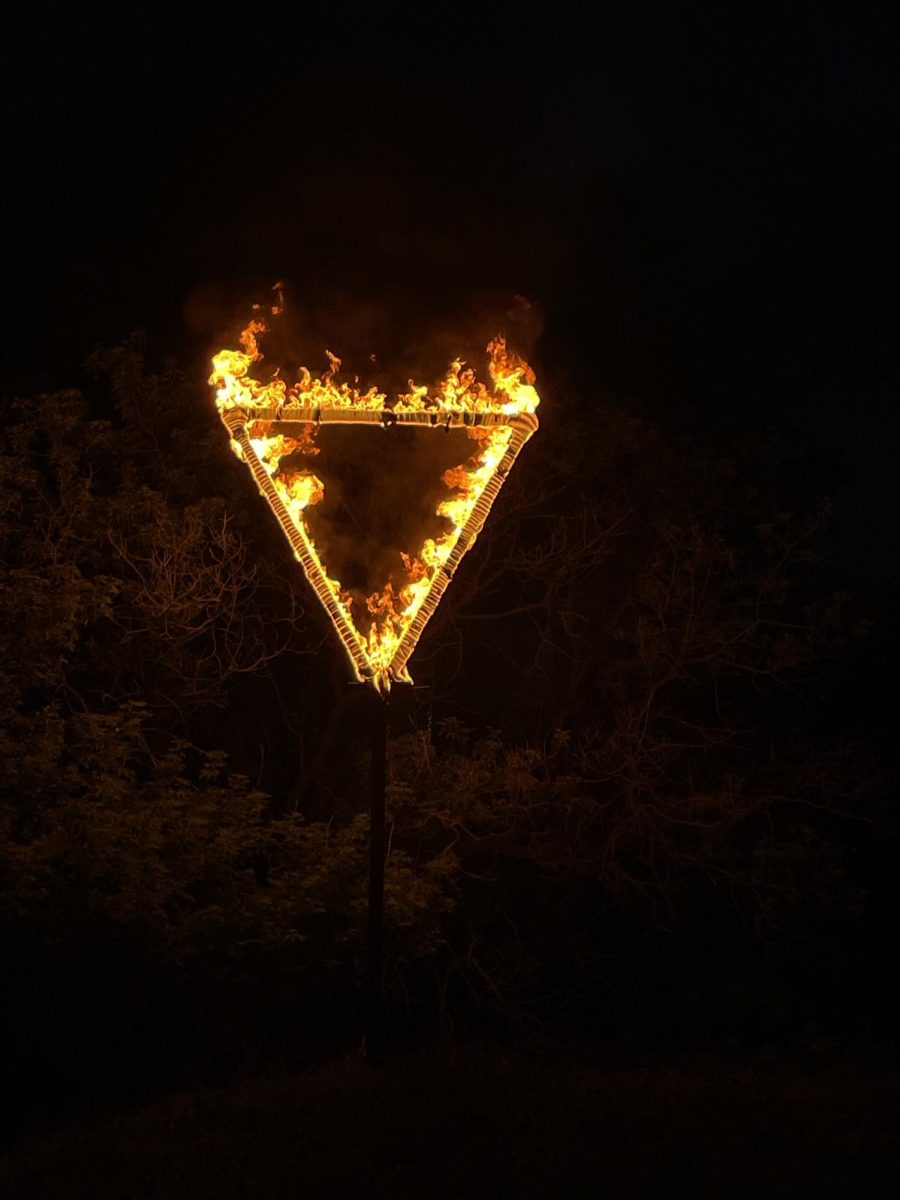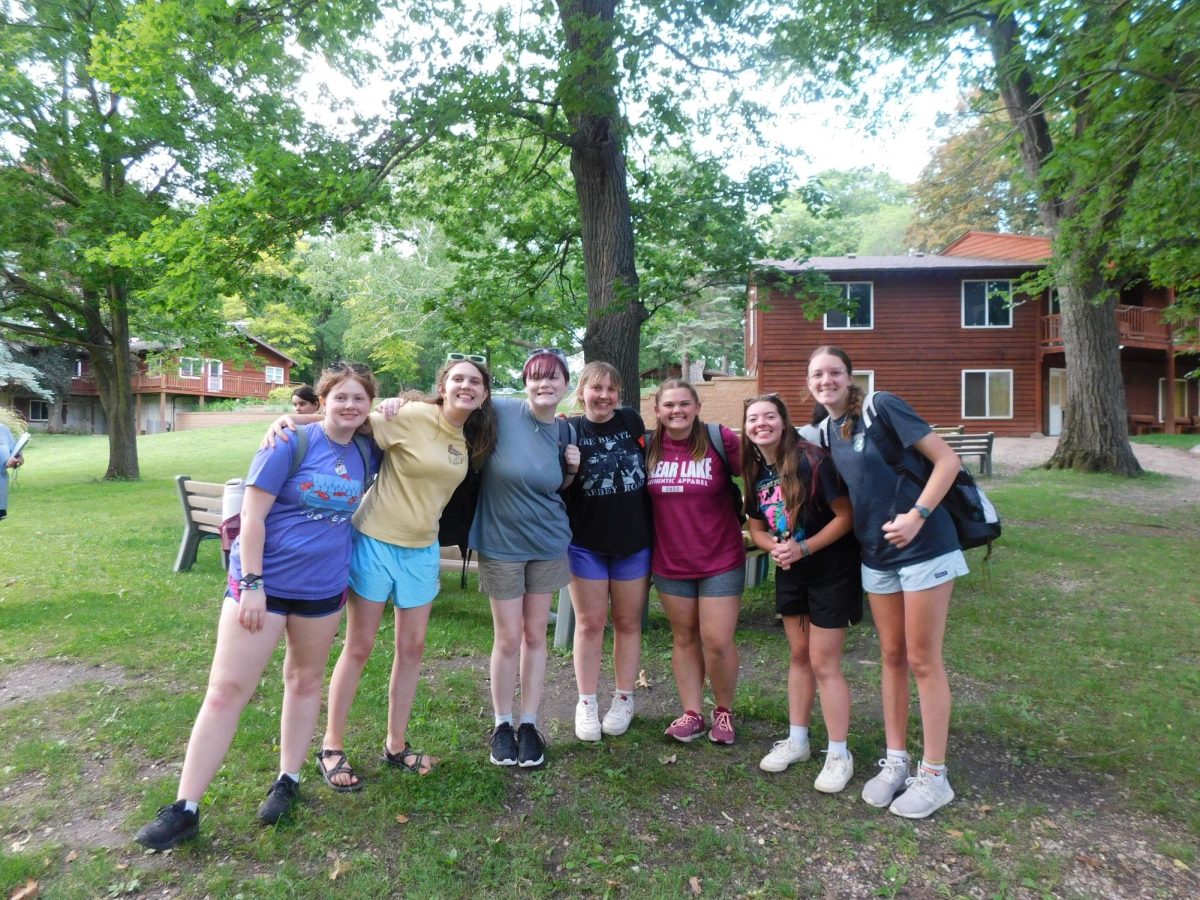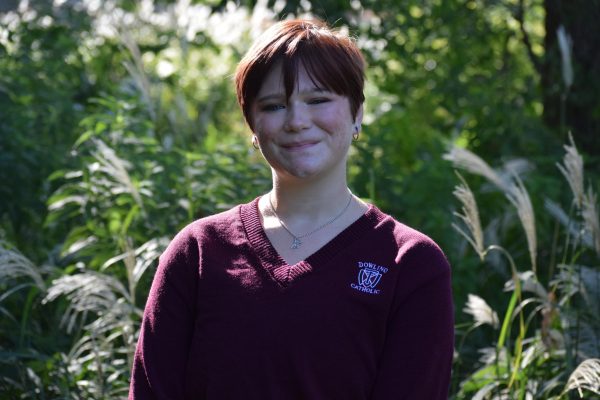Everyone who knows me knows that my life revolves around summer camp, specifically what I call my home away from home: Girl Scout Camp Tanglefoot. Girl Scout camp has been a staple during my summers for as long as I can remember. What are the benefits of summer camp and how do those who have been thinking of their experience?
There are many positives to sending your kid to an overnight camp. First, camp is great for physical activity. Most camps include a variety of things including walking around, swimming, outside games, and obstacle courses. Kids are in constant movement. Plus, camps offer 3 meals a day and usually some sort of treat.
There is also a decrease in screen time, which, knowing today’s youth, is most likely needed. While not every camp is phone-free, my camp is. It is widely known that social media can take a toll on one’s mental and emotional health. So, taking it away can give teenagers a sense of relief from the stress and judgment of social media. According to Psychology Today, a break from social media can improve stress, anxiety, depression, and body image concerns. A 2022 research study of girls ages 10-19 demonstrated that a three-day social media break significantly lowered their body surveillance (for instance, worrying about whether their clothes were flattering to their bodies) and body shame and increased their self-compassion.
Not only is camp good for mental and physical health, but studies show that summer camp is good for the development of our brains. According to The Multicultural Alzheimer’s Prevention Program by Harvard, summer camps can help develop the prefrontal cortex. The prefrontal cortex serves many functions, especially in youth. It gives us the ability to regulate our emotions, feel empathy, communicate, adapt, make decisions, and even overcome our fears. Tina Payne Bryson, PhD says, “So when kids have camp experiences that require them to overcome fear, be flexible, handle their emotions (especially away from their parents), be persistent to master something, build relationships, and so on, it builds this important part of the brain. And by the way, this can happen in even more significant ways when counselors are trained to handle emotional reactivity in campers in ways that reduce reactivity and promote resilience.” Going to an overnight camp can help a kid learn these skills which develops and strengthens, over time, their prefrontal cortex.
Working as a camp counselor is a unique experience because of the lifelong friendships that I have been able to create, and the amount of things I have learned in just a couple of months. But that doesn’t mean that the job doesn’t have its struggles. Many days I found myself mentally and physically exhausted. I would also struggle to get up the next morning and even found myself with a shorter temper than usual. But the long nights and early mornings are all worth it when you see the kids that you are counseling making quick friendships with each other and slowly becoming more comfortable with themselves in this new environment. When a kid writes you a letter telling you that you had made them feel welcomed for the first time, all the struggles I sometimes feel seem to disappear.
I sat down with Allision Gonyo (’25) to ask her about her camp experience. She started going to Camp Heart Connection in 2013 when she was 6 years old with her sister after Ashley’s cancer diagnosis in February of that year. Camp Heart Connections is a part of Children’s Cancer Connections, and their goal is to give campers a safe place to bond with other campers who understand what they are going through, regardless of where they are in their cancer journeys. Gonyo talked about how this was a scary point in her life. “I was a little too young to grasp how serious everything was. And so I got to talk to other people who were going through the same situations that I was.” Throughout her time there, Gonyo said that she has grown up a lot, both physically through the years and emotionally, and has been able to fully grasp her sister’s cancer diagnosis and treatment. The camp also offers a Leadership in Training program that Gonyo got to participate in this past summer. She spent two weeks counseling kids who were in a similar situation to the one she had been in years ago. I asked what her most impactful camp memory had been and she told me, that at the end of the week, everyone writes a wish on a popsicle stick and goes up and talks about how camp has impacted them. This year, Allison was sitting next to a camper who thanked her for being a light in her week. Then a ten-year-old boy went up and talked about his treatment and PET scans, MRIs, and bone marrow treatment. Gonyo said this impacted her so much because the girl sitting next to her told her that no kid should know those things.
Georgia and Margo Lage (’27) have both gone to the YMCA camp in Boone, Iowa for the last thirteen years, including four years when they went with their families. Y-camps across the countries have four core values that they teach their campers to live by respect, responsibility, honesty, and caring. Their camp teaches them how to apply them to everyday life at camp and how to take them home. In addition to the four core values, there is another significant idea that they teach us, and the symbol is an equilateral upside-down triangle. This symbol represents the spirit, the mind, and the body and how they all need to be equal for one to live a balanced life. Georgia says that camp has provided her with ways to live a life where she can spread kindness and positivity, but also remind her that she needs to take care of herself and keep her triangle balanced.
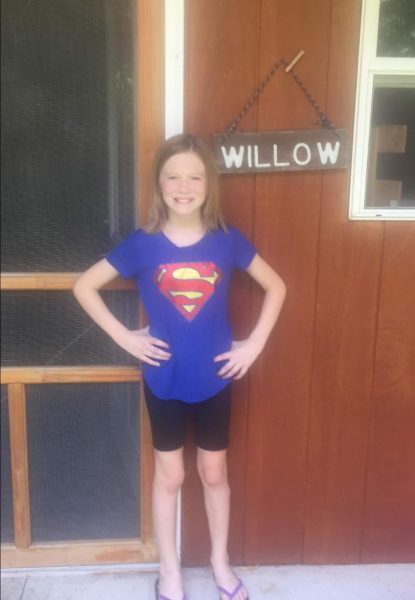
For me, camp started when I was young when my parents sent me to Camp Sacajawea in Boone, Iowa where I went for many years. Then, the summer before my 6th grade, I started going to Camp Tanglefoot in Clear Lake, Iowa. For the last couple of summers, I have gone to this camp for an extended amount of time every summer and this year I got the chance to work there.
I asked a couple of my friends from camp what Tanglefoot meant to them. Stella Proctor is a junior in college at UNI and graduated from South East Polk in 2020. This was her third summer on staff. Stella attributes all of her confidence to camp. At school, she struggled with friendships and always thought that there was something wrong with her. However during her time as a CIT, people had treated her like everyone else, and her counselors reassured her that she was extremely helpful and had the important skills that it took to be a counselor. She talked about how she was teaching her first group of kids their song for the final campfire, the first song she had sung as a camper, and how they knew it so well. At that moment she knew that the kids would remember the song for a very long time like she had, and she had the privilege to give it to them. She has learned to have confidence in herself; every year she comes back, that confidence and love grows.
This was Ariana Gray’s third summer on staff, her mother worked at the camp as a teenager and started bringing her to camp reunions before she said her first word. As a camper, the camp was a place where she was free to be herself and try new things without feeling judged for making mistakes. As a counselor, she loves that she now gets to uphold that safe and encouraging environment for her campers and fellow staff. She also loves making so many wonderful friendships and memories with the staff.
Karlee Salmela is a freshman in college and this was her second summer on staff. Summer camp has been an essential part of shaping who she is today. Growing up as a camper and transitioning into a counselor has taught her how to be independent, take initiative, try new things, and so much more. She recently moved into college and her experience at camp proved to be more essential than she ever realized, unlike many of her peers she had lived in a shared space away from home before. Her time at camp has brought her the closest friendships and best memories, and she wouldn’t even trade it for the world.
The last person I talked to was my friend, Tessa Bintner, who is a senior at Roosevelt High School. Tessa and I met in Challenge, which is a unit for incoming 9th graders. For the next two summers, Tessa, the other people in our year, and I completed our camps Counselor-in-Training (C.I.T.) program and finally this summer we all got to work on staff together. Tessa told me that summer camp has always been a place where she could be herself and make new friends and connections. When she was a camper she always looked forward to going because it was a break from her phone and everything going on in the outside world inside the camp bubble. Being a counselor meant so much for Tessa. She was finally the one who got to share the magic that was felt when she was a camper. She said, “it felt so special to be a part of camp and get to know all of the things that I wanted to know as a camper. Being a counselor was also so much fun because I got to meet so many new people and make so many new friends. I also got to see all of my campers make the same friendships and amazing memories I did!”
For all that have been to summer camp, we can agree on one thing: camp is our home away from home.


